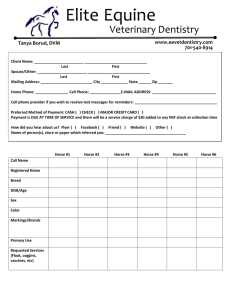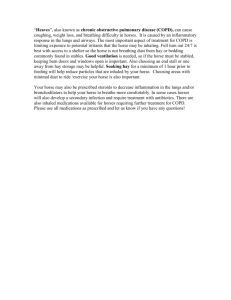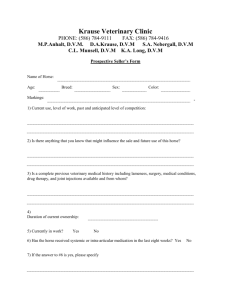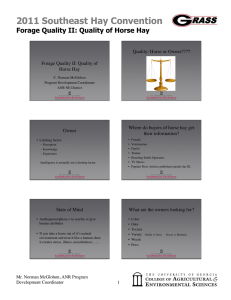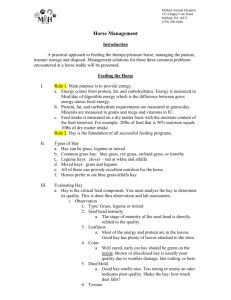Final-AskTheVet
advertisement
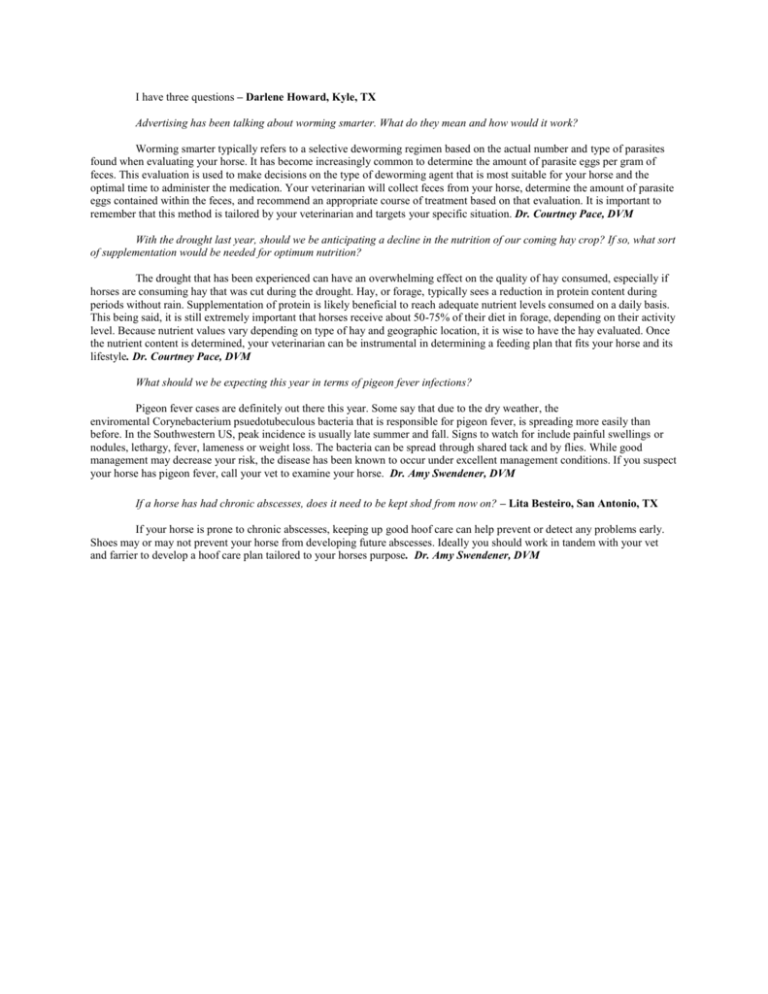
I have three questions – Darlene Howard, Kyle, TX Advertising has been talking about worming smarter. What do they mean and how would it work? Worming smarter typically refers to a selective deworming regimen based on the actual number and type of parasites found when evaluating your horse. It has become increasingly common to determine the amount of parasite eggs per gram of feces. This evaluation is used to make decisions on the type of deworming agent that is most suitable for your horse and the optimal time to administer the medication. Your veterinarian will collect feces from your horse, determine the amount of parasite eggs contained within the feces, and recommend an appropriate course of treatment based on that evaluation. It is important to remember that this method is tailored by your veterinarian and targets your specific situation. Dr. Courtney Pace, DVM With the drought last year, should we be anticipating a decline in the nutrition of our coming hay crop? If so, what sort of supplementation would be needed for optimum nutrition? The drought that has been experienced can have an overwhelming effect on the quality of hay consumed, especially if horses are consuming hay that was cut during the drought. Hay, or forage, typically sees a reduction in protein content during periods without rain. Supplementation of protein is likely beneficial to reach adequate nutrient levels consumed on a daily basis. This being said, it is still extremely important that horses receive about 50-75% of their diet in forage, depending on their activity level. Because nutrient values vary depending on type of hay and geographic location, it is wise to have the hay evaluated. Once the nutrient content is determined, your veterinarian can be instrumental in determining a feeding plan that fits your horse and its lifestyle. Dr. Courtney Pace, DVM What should we be expecting this year in terms of pigeon fever infections? Pigeon fever cases are definitely out there this year. Some say that due to the dry weather, the enviromental Corynebacterium psuedotubeculous bacteria that is responsible for pigeon fever, is spreading more easily than before. In the Southwestern US, peak incidence is usually late summer and fall. Signs to watch for include painful swellings or nodules, lethargy, fever, lameness or weight loss. The bacteria can be spread through shared tack and by flies. While good management may decrease your risk, the disease has been known to occur under excellent management conditions. If you suspect your horse has pigeon fever, call your vet to examine your horse. Dr. Amy Swendener, DVM If a horse has had chronic abscesses, does it need to be kept shod from now on? – Lita Besteiro, San Antonio, TX If your horse is prone to chronic abscesses, keeping up good hoof care can help prevent or detect any problems early. Shoes may or may not prevent your horse from developing future abscesses. Ideally you should work in tandem with your vet and farrier to develop a hoof care plan tailored to your horses purpose. Dr. Amy Swendener, DVM
